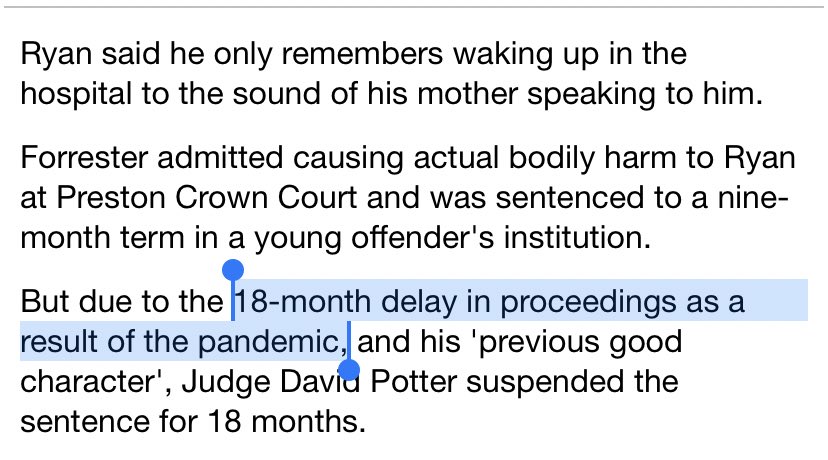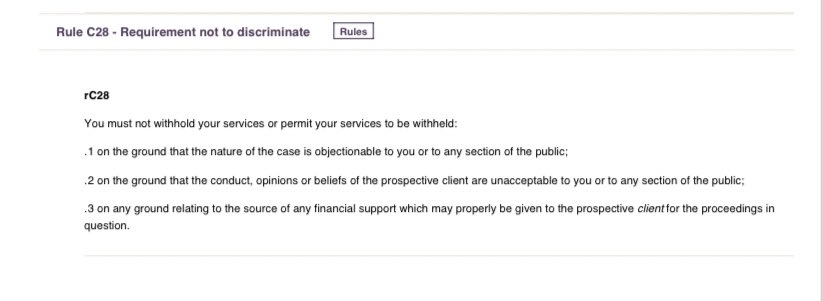
We are seeing this more and more.
Huge delays in criminal justice, caused *not* by Covid but by government cuts, mean that courts are forced to deal with offenders - including serious assaults - more leniently.
The government owes victims an apology.
dailymail.co.uk/news/article-9…
Huge delays in criminal justice, caused *not* by Covid but by government cuts, mean that courts are forced to deal with offenders - including serious assaults - more leniently.
The government owes victims an apology.
dailymail.co.uk/news/article-9…
And less of this #FakeLaw please. Covid has not been around for 18 months. The delays in criminal justice have been around for years, and we’re getting worse long before Covid.
Don’t let them lie to you.
Don’t let them lie to you.

For those asking why delay means more lenient sentences, it is set out in the Sentencing Guidelines as a mitigating feature. It should incentivise a “tough on crime” government to properly resource the system to reduce delays.
This government has deliberately increased them.
This government has deliberately increased them.

Why is delay a mitigating factor? Where it’s not a defendant’s fault - ie where a defendant has promptly admitted guilt and the systemic delays been it takes years for them to be sentenced - the Guidelines recognise that this can cause serious difficulties for defendants.
They, like the victims, will have had proceedings hanging over them for years, not knowing their fate. They may (especially if young) have changed their lives in the intervening period - new job, perhaps a young family. They may appear to be successfully rehabilitated.
None of that reduces the pain of the victim, of course. But it does mean that when a court is balancing the competing aims of sentence (punishment, rehabilitation, public protection, restoration and deterrence) there may be strong arguments for keeping an offender out of prison.
As ever, this is not a defence of the sentence in that particular case. Just an explanation of how the law works, and why it is so important, for all concerned, that delay be minimised. Instead, this government has continued to increase delay by refusing to properly fund justice.
• • •
Missing some Tweet in this thread? You can try to
force a refresh




